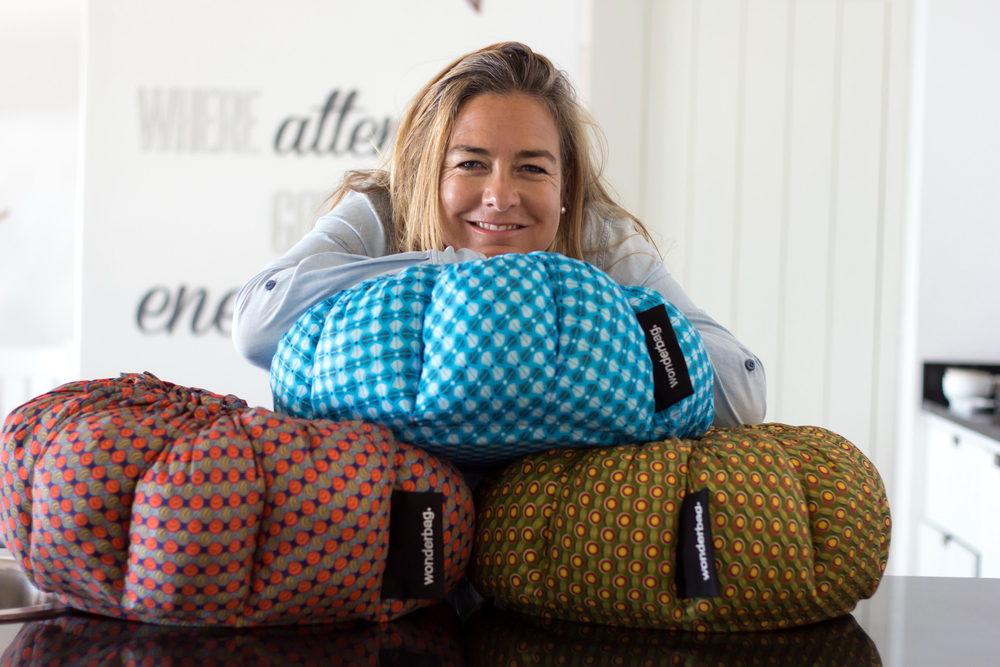
Sarah Collins, inventor of the Non-Electric Slow Cooker
Picture this: You want to cook a meal. In the US, this is an easy enough proposition, if occasionally tiring. You take a trip to the grocery store, prep your ingredients, and leave them to cook, whether in an oven, on a stovetop, or in a slow cooker. Before too long, you sit down and eat. Simple, right?
In rural Africa, no such luck. For many women, making a meal is a long, costly process fraught with danger. Every day, women across the continent spend up to seven hours collecting firewood to use for cooking, walking between 3 and 6 miles, taking away time that could be spent working or bonding with family members, and risking sexual assault and attacks by animals along the way. Those who don’t collect firewood often cook with charcoal, a fuel that eats up a sizable chunk of a rural family’s income—think along the lines of one third. The actual cooking takes hours, and the use woodfuels combined with that of an open flame contributes to potentially deadly levels of indoor air pollution. In providing for their families, these women make sacrifices that are unimaginable to many, risking their health and livelihood for the sake of a single meal. A trip to a packed Trader Joe’s at 6 o’clock on a Tuesday pales in comparison.
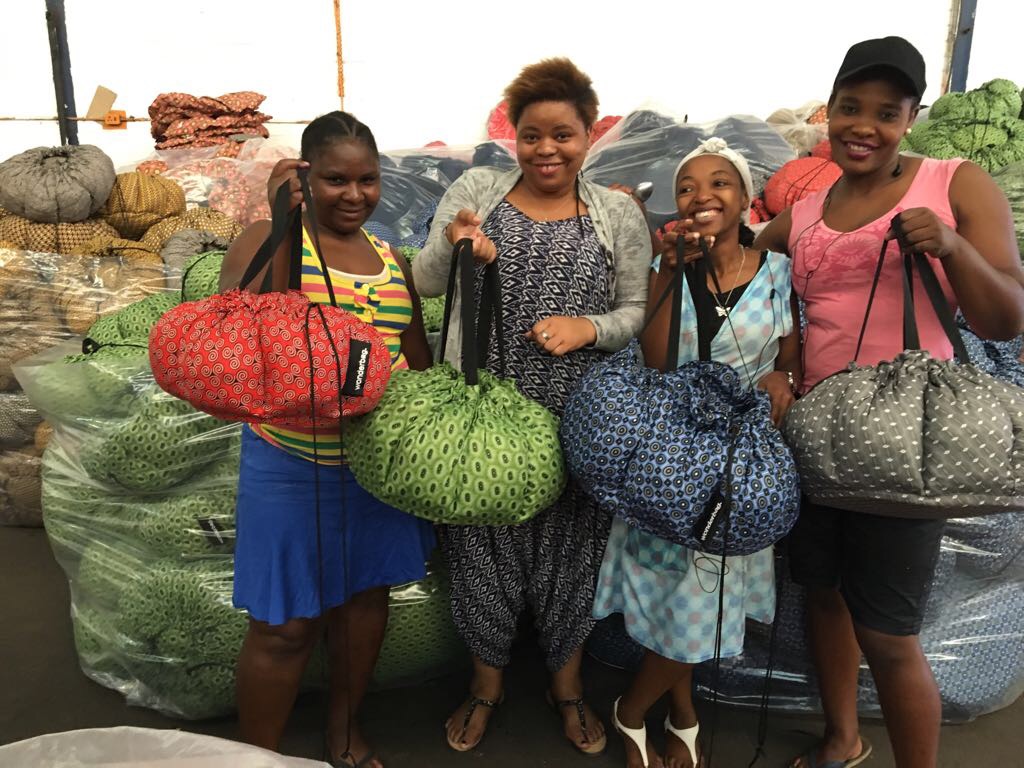
For South African entrepreneur Sarah Collins, this was a key problem. Her lifelong mission to empower rural Africans has manifested in many types of work, from conservation to political action, but perhaps her most meaningful contribution has been the invention of the Non-Electric Slow Cooker, also known as the Wonderbag. Now available for purchase from UncommonGoods, Sarah’s slow cooker—made from patterned cotton fabric stuffed with repurposed foam—keeps food brought to a boil cooking for up to 12 hours simply by trapping heat. For every Non-Electric Slow Cooker purchased in the developed world, another is donated to the Wonderbag Foundation, an organization that distributes Sarah’s invention to communities in need throughout Africa. Because the Non-Electric Slow Cooker doesn’t require an open flame to keep food cooking, it reduces pollution and deforestation throughout Africa and keeps rural women and families safer and healthier, freeing up their time and money for work, play, and family bonding.
As a certified B Corp, UncommonGoods is committed to offering sustainable, socially responsible products. When we first heard about the Non-Electric Slow Cooker, we were intrigued—we’d never heard of a slow cooker made out of foam! Once we learned of its impressive effect in Africa, though, we knew we needed to hear more from its inventor. Read on for more of Sarah’s story—including advice on how to contribute to her mission, even from afar.
What came first—the idea for the Non-Electric Slow Cooker, or the understanding that a change in cooking methods could revolutionize the lives of women and their families in rural Africa?
I knew that women needed more time to do other important things such as working, [pursuing] agricultural and entrepreneurial endeavors. By gaining hours back in the day, it would give women and girls the time—and opportunity—to be productive, and better still, dramatically improve their quality of life by addressing the health risks associated with cooking over fires for hours on end. So, I had been exploring different methods of saving time for women and girls before I came up with the Non-Electric Slow Cooker.
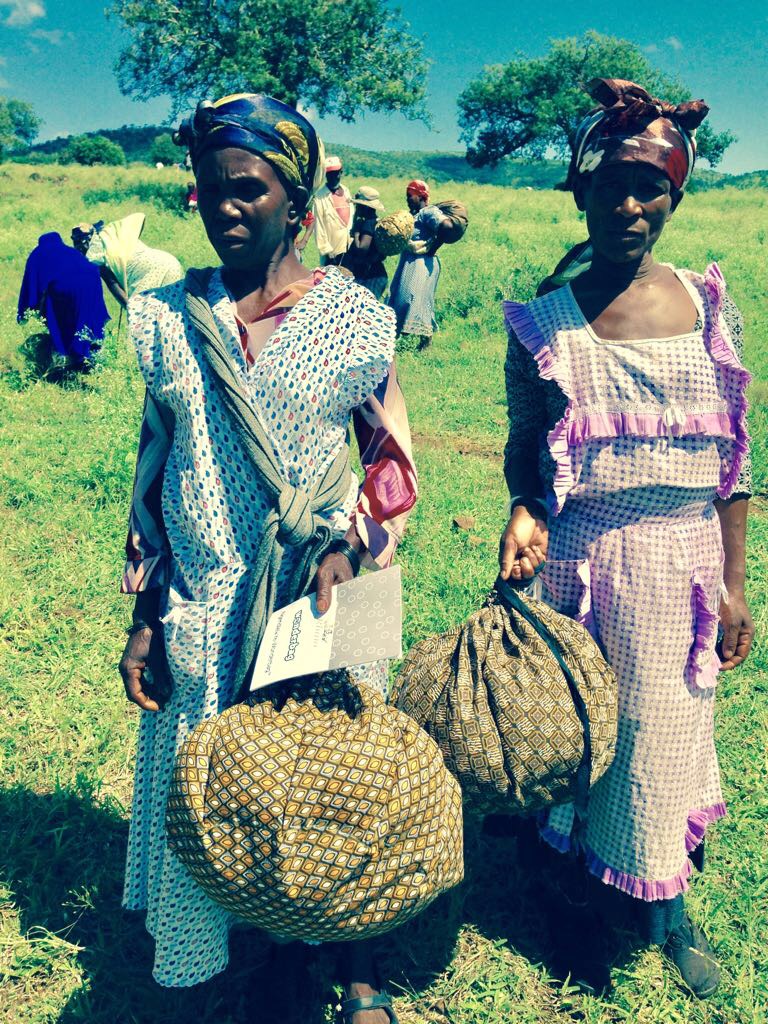
Were you surprised to discover the full extent of the Non-Electric Slow Cooker’s impact on women, families, and the environment? What aspect of its success excites you most?
I am astounded. Two things excite me the most: First, that it can increase a rural household’s income by more than double or even triple a month just saving the money they would otherwise have spent on fuel, not taking into account the extra time which now becomes potential economically fruitful time.
Secondly, it is a global solution, one that binds women around the world. It works for women who live in New York City and don’t have time to cook healthy meals for their families and rural women who have to rely on firewood and trees and spend their last pennies on cooking fuel. It is a global and unifying solution for women around the world. A great equalizer!
From start to finish, how long did it take to develop the Non-Electric Slow Cooker? Did you face any particularly difficult design problems in the early stages?
The Non-Electric Slow Cooker has been a product that is constantly being iterated and improved upon. We are continuously looking for fully recycled materials, ways to improve our supply chain and distribution costs. The actual first Non-Electric Slow Cooker took a few weeks to get made and put in use. The product you see now is version six!
Could you talk a bit about how the Non-Electric Slow Cooker is made today? For example, how do you source your materials? Who actually makes the slow cookers?
The slow cookers are made in our factory in South Africa where we create jobs for the local women. Predominately, women have been the highest percentage unemployed. We source all of our foam from repurposed suppliers around the world, such as the car industry and furniture industry. This is foam that would have otherwise ended up in the ocean or landfill. All slow cookers are handmade and it has taken a great amount of work and dedication to get the quality and processes in place for us to scale to service the markets we currently export to.
Did you initially design the Non-Electric Slow Cooker with casual, first-world consumers in mind, or was your focus primarily on the women, children, and families who’d be using the product as a tool for change in developing nations?
Developing nations without a doubt! First world consumers happened by accident!
It’s clear that you’re dedicated to the unique problems facing African communities and that you believe in the Non-Electric Slow Cooker’s ability to make a difference in these areas. Are there other parts of the world where you think the Non-Electric Slow Cooker could make a similar impact? Do you have any plans to expand the work of the Wonderbag Foundation beyond Africa’s borders?
We are currently working in refugee camps in the Middle East; we have a pilot project in India and are exploring South America and China. The whole world needs Non-Electric Slow Cookers. Every kitchen will have one, if I have anything to do with it for long enough!
What advice do you have for someone located outside of Africa who has an interest in further supporting your work? How best can those of us far away from the on-the-ground mission take action?
Buy and use a Non-Electric Slow Cooker, donate one to our foundation, tell a friend, serve and support communities in your area that have soup kitchens and could do with help and could save electricity by cooking with a Non-Electric Slow Cooker. Tell the world about the wonders of making this world a place we want to bring our children into. Every bit of good helps; hug someone or just smile and say: “Hello!” Goodness in a bag is our motto, in whatever form that takes. We each can make a difference to someone else, and it makes us feel part of a happier global community.

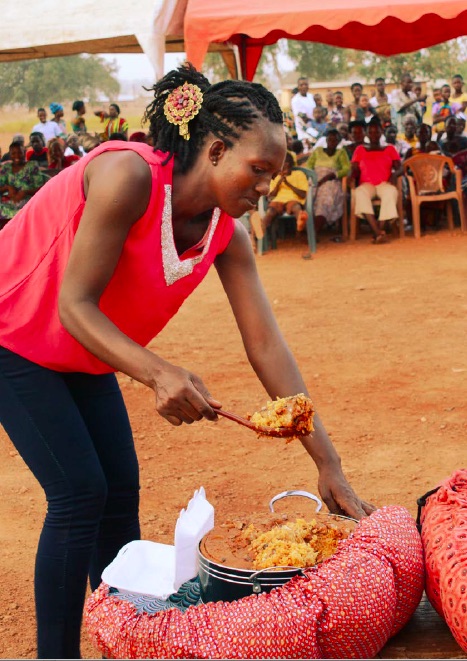
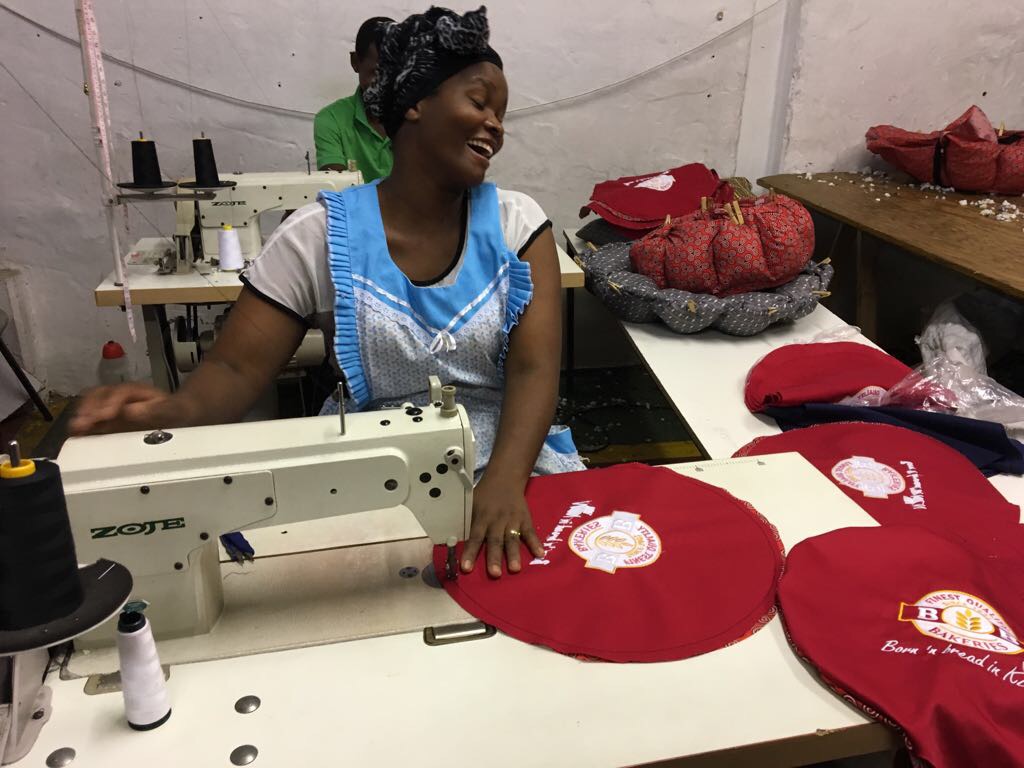
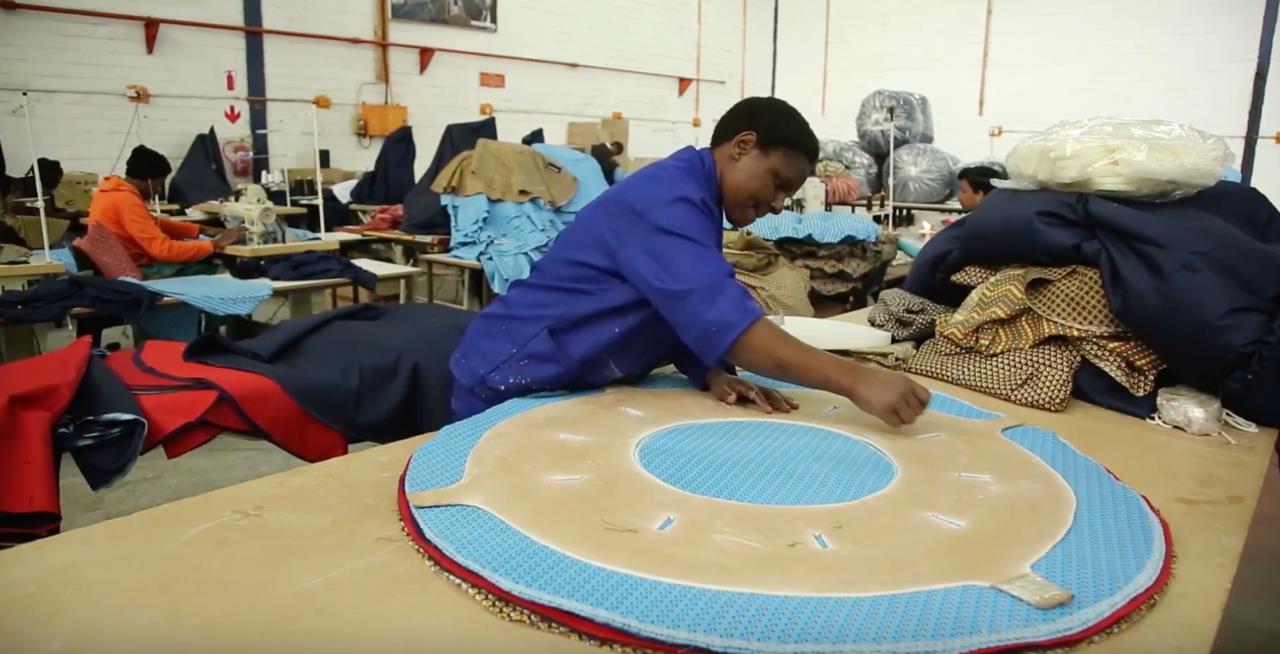

3 Comments
I have friends in Uganda. How do I share this cooker with them?
Hi, Abigail. We’re glad you’re interested in sharing the Non-Electric Slow Cooker with your friends in Uganda! For more information on the Wonderbag Foundation, check out their website here. UncommonGoods also ships internationally, including to Uganda; if you’re interested in sending them the Non-Electric Slow Cooker as a gift, take a look at our International Ordering FAQs for more information on how to do that.
I am so impressed with what you are doing for women in other countries! This is really an amazing product. There are also many women in Appalachia who could benefit from your product. If you were able to connect with the right organization, I feel sure people would purchase your non-electric slow cooker for many of them.